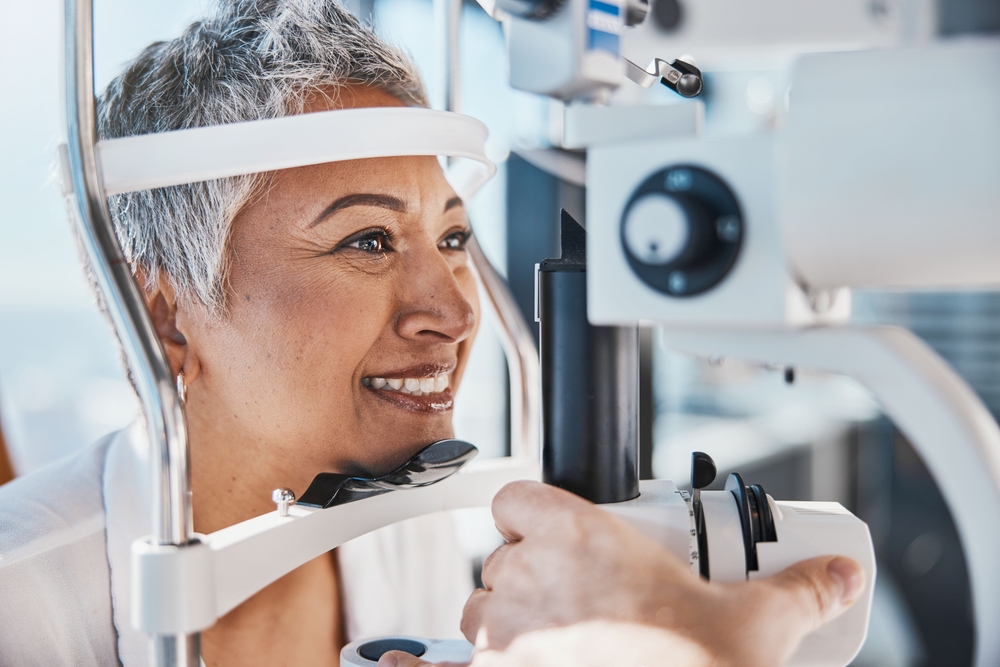
As we age, our bodies undergo many changes, and our eyes are no exception. It is a natural process and, unfortunately, it often leads to certain eye health issues, some of which can significantly impact our quality of life. That's why understanding the changes our eyes go through and maintaining good eye health is essential as we grow older.
The Importance of Maintaining Good Eye Health as You Age
Maintaining good eye health is not just about seeing clearly. It's about preserving our overall quality of life. Our eyes are our windows to the world, allowing us to enjoy beautiful moments, read, work, and perform daily activities with ease. As we age, these precious windows can get cloudy, and it can affect not only our vision but our independence and ability to perform tasks we have always taken for granted.
Age can bring about various eye health issues such as macular degeneration, glaucoma, and cataracts, leading to vision loss or impairment. Such issues can make daily activities challenging and lead to a decrease in our overall quality of life. Poor eye health can also lead to a higher risk of falls and injuries, which can be particularly detrimental for older adults. Maintaining good eye health as we age is of paramount importance.
Good eye health can also be indicative of our overall health. Certain systemic diseases like diabetes and high blood pressure can manifest through eye-related symptoms. By taking good care of our eyes and having regular check-ups, we can detect such diseases early and manage them effectively.
Common Eye Health Issues Related to Aging
Growing older can lead to several eye health issues. Some of the most common ones include presbyopia, cataracts, macular degeneration, glaucoma, and diabetic retinopathy.
Presbyopia is a common condition that affects most people over the age of 40. It is characterized by a gradual loss of the eyes' ability to focus on nearby objects. Cataracts, on the other hand, involve clouding of the eye's natural lens, leading to blurred or hazy vision.
Macular degeneration, which is often age-related, affects the central part of the retina, leading to loss of central vision. Glaucoma affects the optic nerve, leading to vision loss and, in severe cases, blindness. Diabetic retinopathy, as the name suggests, is often seen in people with diabetes and involves damage to the blood vessels of the retina.
Practical Tips for Maintaining Good Eye Health
There are several practical tips for maintaining good eye health as you age. First and foremost, regular eye exams are crucial. These exams can detect eye health issues early, when they are most treatable.
Next, protecting your eyes from the sun's harmful ultraviolet (UV) rays is extremely important. This can be achieved by wearing sunglasses that block out 99% to 100% of both UVA and UVB radiation.
If you're a smoker, quitting can significantly reduce your risk of developing several eye health issues, including cataracts, macular degeneration, and dry eyes.
Our diet plays a significant role in maintaining good eye health. Eating a balanced diet rich in fruits, vegetables, lean proteins, and whole grains can provide our eyes with the necessary nutrients they need to function optimally. Foods rich in antioxidants such as beta-carotene, lutein, zeaxanthin, vitamins C and E can help protect our eyes from harmful free radicals. Omega-3 fatty acids, found in fish and flaxseeds, can help prevent dry eyes and improve overall eye health.
Staying hydrated is also essential for maintaining good eye health. Dehydration can lead to dry eyes, which can cause discomfort and blur your vision.
Getting enough sleep is also crucial as it allows our eyes to rest, repair, and recover. Poor sleep can lead to several eye health issues, including dry eyes, twitching, and blurry vision.
Limiting screen time and practicing the 20-20-20 rule (every 20 minutes, look at something 20 feet away for 20 seconds) can help prevent digital eye strain, a common issue in today's digital age.
When to Seek Professional Help for Eye Health
While preventive measures and lifestyle changes can go a long way in maintaining good eye health, it's equally important to know when to seek professional help. Any sudden changes in vision, such as blurriness, double vision, or loss of sight, should warrant immediate medical attention.
Additionally, persistent eye discomfort, redness, or swelling, and symptoms like flashes of light or floaters, should also be evaluated by an eye care professional. Remember, early detection and treatment are key to managing most eye health issues effectively.
Preserve Your Eye Health Today
Maintaining good eye health is not just about preserving our vision, but it's about preserving our overall well-being. Let's take proactive measures, make necessary lifestyle changes, and seek professional help when needed to ensure our eyes continue to serve us well as we age.
For more information on maintaining good eye health as you age, visit East Vancouver Eye at our Vancouver, Washington, office. Call (360) 449-3937 to schedule an appointment today.







